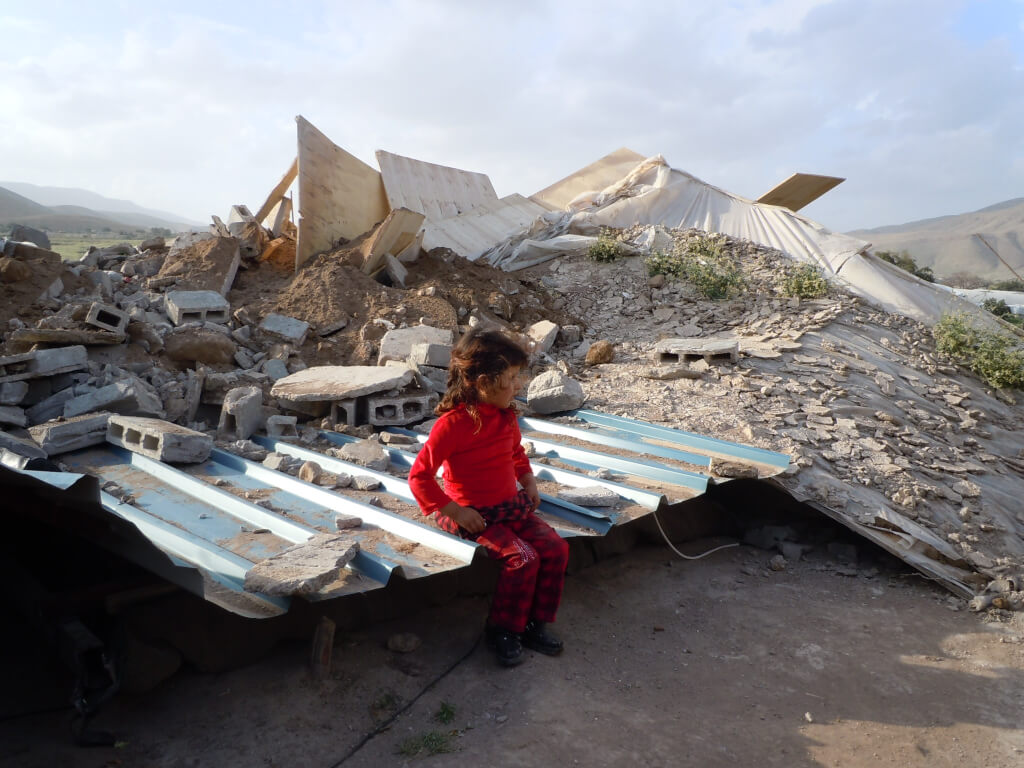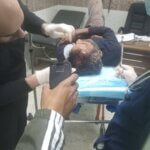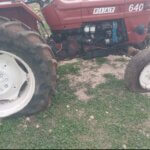New house demolitions in al-Jiftlik

See our photos of demolitions on Flikr here
Today, Wednesday, March 14th, between 4 and 6 pm the Israeli Occupation Forces raided the village of Jiftlik and demolished three houses making 22 people homeless. One bulldozer and 12 Israeli jeeps arrived and surrounded the families declaring the areas closed military zones.
The first house, a three room structure, was located in Abu al-Ajaj (al-Jiftlik) and belonged to Ayman Meteb Mahoud Ideas. He, his wife and his 5 children were given just 30 minutes to remove their belongings from the house but, as the owner of the house explained, “we didn’t have time to take all your properties, we left inside our kitchen and all the kitchenware and now they lie under the ruins of my house”. Three months ago the family received a demolition order.
The second house was located in al-Jiftlik, near the main road and belonged to Yousef Bsharat. The army demolished his house without leaving his family the time to take their belongings. 7 people were displaced. Some months ago the family received an order to stop the construction of the building and, as the owner of the house said, “we didn’t continue to build, but today the army came and destroyed everything I had”.
The third building, located in Makhroq (al-Jiftlik), belonged to Sulaiman Tawfiq Daraghmeh and it was a 3 room summer metal house and while the demolition occurred the owner wasn’t there.
Just two days ago, on the 13th of March 2012, 3 homes and 5 animal shelters were demolished in Fasayil al-Wasta.
House demolition
This new wave of house demolitions that occurred today is part of a wider Israeli policy implemented by the Israeli Occupation Forces to expel Palestinians from the Jordan Valley and especially from area C. According to the OCHA factsheet on Jordan Valley and Dead Sea area .
House demolitions, the theft of land and water resources, and the enlargement of the Israeli settlements in the Jordan Valley are part of the same Israeli policy which aims at pushing the Palestinians out of the area. A silent forced transfer is going on in theJordan Valley: since 1967 the population of the area has decreased in an exponential way passing from more than 300.000 inhabitants to less than 60.000. And just one quarter of them resides in area C, which represents 87% of the Jordan Valley.
For years, the Israeli authorities have pursued a policy of discriminatory house demolition: while they have allowed the creation and the enlargement of the Israeli settlements which are built on occupied Palestinian land, in breach of international law, at the same time they have confiscated Palestinian lands, have refused building permits for Palestinians and have demolished their homes. Settling their own citizens in occupied Palestinian territory, and destruction of private property occupied territory, are breaches of the Fourth Geneva Convention of which Israel is a signatory.
Al-Jiftlik and the community of Abu al-Ajaj
Al-Jiftlik is a Palestinian village located in the central part of the Jordan Valley. It has a population of 5000 inhabitants and it is surrounded by several military camps and settlements.
Abu al-Ajaj is an old farming community in al-Jiftlik, which is threatened by Massu’a settlement. This is a large Israeli agricultural colony established in 1970. It has a population 142 people and an agricultural land of 817 dunums (1 dunum = 100 m²). This settlement, like the other Israeli settlements of the area, produces fruit and vegetables, for export, through the exploitation of Palestinian labour force and Palestinian water resources. The majority of Palestinian inhabitants live in poor housing conditions as a result of laws which prohibit them from renovating or expanding their homes. They also suffer regular home demolitions from the Israeli military and persistent attacks from Massua settlers who have gradually stole more and more land from the village.
Around 25 Palestinian families, most of them farmers, live in Abu al Ajaj, but they are forced to live in harsh and difficult condition since they have no access to water and electricity and they are forbidden to build their own infrastructure. In the last years this community has been constantly threatened and harassed by the Massu’a settlers, who have gradually stolen more and more land, backed up by the Israeli Army.




